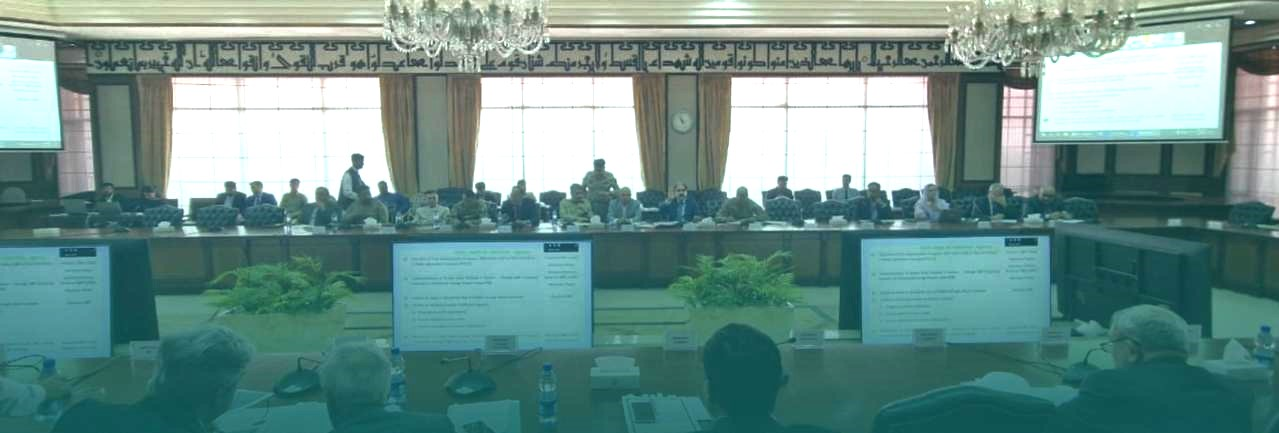The Special Investment Facilitation Council (SIFC) has approved the restructuring of Pakistan’s tax machinery, marking the second overhaul in 15 years. The council, led by Prime Minister Anwaarul Haq Kakar, endorsed the division of the Federal Board of Revenue (FBR) into two entities, removing its authority to formulate tax policies.
The SIFC greenlit the FBR restructuring this week, allowing a one-month implementation period for the new plan. An FBR Restructuring Implementation Committee will be formed to devise ways to execute the scheme before the upcoming general elections, top government sources told The Express Tribune.
In addition to the FBR restructuring, the SIFC also approved a fixed income tax scheme for retailers, slated to launch in five major cities across the country. Immediately following the SIFC’s decision on FBR restructuring, interim Finance Minister Dr Shamshad Akthar chaired a lengthy meeting with all stakeholders. The inter-ministerial committee endorsed the SIFC’s decision with minor modifications, government sources reported.
Under the newly approved structure, the FBR will cease to exist in its current form. The responsibility for formulating income tax, sales tax, and federal excise policies will be transferred to the Revenue Division. The Revenue Division will be headed by the Secretary of the Revenue Division, reporting directly to the finance minister. Within the Revenue Division, a tax policy office, named the Federal Policy Board, will be established.
The second function of the Revenue Division will involve property and import goods valuation, according to sources.
If fully implemented, Malik Amjad Zubair Tiwana is expected to be the last chairman of the FBR. The last restructuring of the FBR occurred in 2007, following an extensive consultation process that began in 2001 and was financed by a $149 million loan from the World Bank.
Two new boards will be established—the Federal Board of Customs and the Federal Board of Inland Revenue (IR). These boards will be led by two separate chairpersons from the custom service group and the Inland Revenue service group, directly reporting to the finance minister.
Chairpersons of these boards may be from the public or private sector, with private sector members also joining these boards, said the sources. Each board will have a Federal Custom Establishment and a Federal Inland Revenue Establishment, headed by director generals assisted by deputy director generals.
There are still divergent views on the FBR’s proposal to establish two new Divisions—the Custom Division and the Inland Revenue Division, to be led by secretaries, said the sources. However, this proposal has not yet received an endorsement.
The SIFC has given the government one month to implement the FBR restructuring. Following the SIFC meeting, an inter-ministerial meeting was held, attended by secretaries of Cabinet, Establishment Division, Finance Division, Commerce Division, and the Law Division.
It was highlighted that the Rules of Business of 1973 and the existing governance structure must align with the new approved structure to facilitate restructuring. The Law Division suggested that wholesale amendments would be necessary in rules and laws.
There is a view that a Presidential Ordinance might need to be promulgated for these legal changes. A summary will be presented to the finance minister for the implementation strategy. The restructuring aims to further enhance the country’s revenues, addressing a budget deficit of around 8% of the GDP per annum. Pakistan has been grappling with the challenge of meeting its growing financing needs, resulting in an alarming increase in the country’s debt burden.
The fresh restructuring exercise is largely administrative, initially proposing a National Tax Authority (NTA) that would centralise the tax functions of provinces and the Centre. However, this proposal was rejected by the Prime Minister’s Office due to constitutional and legal issues.
This marks the ninth attempt to reform tax policy and administration in the past 32 years. Various committees and commissions have been formed over the years, including the Tax Reforms Committee in 1990, the Resource Mobilisation and Tax Reforms Commission in 1994, the Commission of Tax Reforms (CTR) in 1997, a committee in 2001 for FBR reforms, the World Bank-funded Tax Administration Reform Project in 2005, TARP phase two in 2009, the Tax Reforms Commission in 2014, and the Revenue and Resource Mobilisation Commission in 2022. The RRMC has not yet submitted its final report and has become dysfunctional.
Retailers’ scheme
According to sources, the SIFC also approved a fixed income tax scheme for retailers. According to the scheme, a new tax will be imposed in five cities, including Lahore, Karachi, Peshawar, Quetta, and Islamabad.
Under the proposal, a retailer’s tax liability will be calculated based on FBR’s property valuation and the rental value of shops. A summary has already been submitted for the finance minister’s approval, government sources reported.






